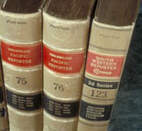(a) A person commits aggravated criminal trespass who enters or remains on property when:
(1) The person knows the person does not have the property owner's effective consent to do so; and
(2) The person intends, knows, or is reckless about whether such person's presence will cause fear for the safety of another;
(3) The person, in order to gain entry to the property, destroys, cuts, vandalizes, alters or removes a gate, signage, fencing, lock, chain or other barrier designed to keep trespassers from entering the property; or
(4) The person, while on the property, recklessly damages the property or personal property thereon.
(b) For purposes of this section, “enter” means intrusion of the entire body.
(c)
(1) Aggravated criminal trespass is a Class B misdemeanor except as provided in subdivisions (c)(2) and (3).
(2) Aggravated criminal trespass that was committed in a habitation, in a building of any hospital, on state property, or on the campus, property, or facilities of any private or public school is a Class A misdemeanor.
(3) Aggravated criminal trespass is a Class E felony when committed:
(A) On residential property belonging to or occupied by a law enforcement officer, active duty member of the military, judge, or elected or appointed federal, state, or local official; and
(B) With intent to harass a person described in subdivision (c)(3)(A) due to the person's status as a law enforcement officer, active duty member of the military, judge, or elected or appointed federal, state, or local official.
(d)
(1) A person also commits aggravated criminal trespass who enters or remains on the real property, including the right-of-way, of a railroad:
(A) With the intent to do harm to the property or to railroad property located on the property; or
(B) With the intent to do harm to another person or knowing that their presence will harm another person.
(2) Aggravated criminal trespass on railroad property is a Class A misdemeanor.
(e)
(1) A person also commits aggravated criminal trespass who trespasses upon a construction site, or property used or owned by a public or private utility or an electric or telephone cooperative, with the intent to steal, deface, destroy, tamper with, alter or remove any equipment, supplies or other property found on the site or property.
(2)
(A) In order for subdivision (e)(1) to apply, the construction, utility, or electric or telephone cooperative property must be posted by use of a sign of a size that is plainly visible to the average person at all gates or entrances to the property and shall contain language substantially similar to the following:
UNLAWFUL ENTRY ON THIS PROPERTY CONSTITUTES THE CRIMINAL OFFENSE OF AGGRAVATED CRIMINAL TRESPASS AND IS PUNISHABLE BY IMPRISONMENT FOR UP TO ONE YEAR AND A $2,500 FINE.
(B) If the proof shows that the defendant entered the posted property at some place other than a gate or entrance, it is not a defense to this subsection (e) that the defendant did not know that the property was posted against trespass.
(3) Aggravated criminal trespass on a construction site is a Class A misdemeanor.





